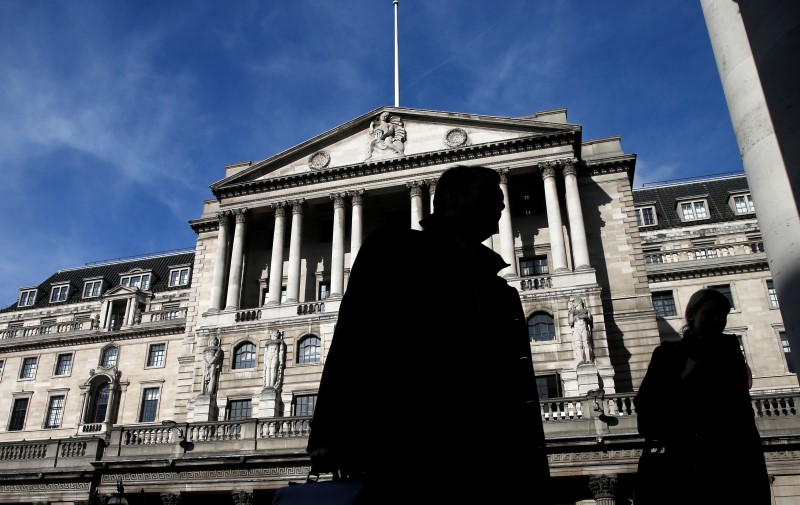Gold prices set for weekly gains on dovish Fed outlook; silver near record high
By William Schomberg
LONDON (Reuters) - The Bank of England's policymakers look likely to end their united front and split on whether to raise interest rates next month, even with the latest data showing inflation at zero and a rise in unemployment.
Comments from top policymakers this week and stronger wage growth have led some economists to see chances rising that there will be higher rates later this year.
The BoE has held interest rates at a record low of 0.5 percent for more than six years as the economy struggled to recover from the effects of the financial crisis.
But the Bank's governor, Mark Carney, said on Tuesday that the time for a rate hike was "moving closer" and another rate-setter, David Miles, was more explicit, saying it might raise borrowing costs before the U.S. Federal Reserve.
On Wednesday, labour market data showed that the unemployment rate unexpectedly edged up in the three months to May, the first increase in more than two years.
But economists put more weight on figures within the same data release that showed workers' earnings, which are central to the BoE's thinking about when to raise interest rates, rising at their fastest pace in more than five years.
Sterling edged down on the rise in unemployment but remained close to a seven-year high against a range of currencies, reflecting the growing sense that Britain's rate hike could happen sooner than recently thought.
"The market's going to be on red alert for any more hawkish rhetoric from the (BoE) and will be cautious about risks of hawkish dissent in August and further out," said RBS (LONDON:RBS) rates strategist Simon Peck.
Allan Monks, an economist with JP Morgan, said three of the BoE's nine rate-setters might vote to raise rates in August, ending the Monetary Policy Committee's no-change consensus that has held since the start of the year.
Miles, once considered the BoE policymaker most keen to provide more stimulus to the economy, said on Tuesday it would be wrong to put off raising rates for too long, suggesting he might vote for a hike in August, his final month at the Bank.
Two other MPC members, Martin Weale and Ian McCafferty, voted to raise rates between August and December last year and are likely to start doing so again soon.
The range of views on the MPC appeared very wide after the Bank's chief economist, Andy Haldane, said two weeks ago that he had no bias on whether rates should go up or be cut.
But Monks at JP Morgan and Philip Shaw, an economist with Investec, both said the chance of a rate hike in the fourth quarter of this year was rising, even if the first quarter of next year still looked like the most likely timing.
"August will take us some way towards the first rate hike but that doesn't necessarily mean it will happen this year," Shaw said, adding Carney's view remained unclear.
Philip Rush, an economist with Nomura, said private sector pay growth -- which was close to an annual 4 percent in the last data -- was now approaching levels that coincided with the start of previous BoE rate-hiking cycles.
Investors will not have to wait the usual two weeks to find out how the MPC's members vote next month.
The BoE will detail the breakdown and give a summary of the debate alongside the monetary policy decision on Aug. 6. The Bank's quarterly inflation report will be published at the same time, part of an overhaul of the BoE's communications strategy which was announced last year.
